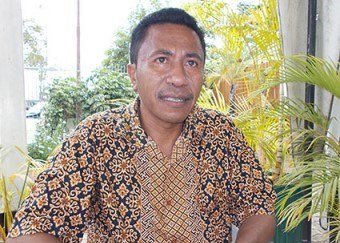
Shannon Gillies
DILI (Pacific Media Watch / Pacific Scoop): Media will be silenced and the people will lose their voice if a controversial new Media Law is ratified in one of the Asia Pacific’s newest countries.
Timor-Leste’s Parliament on May 6 passed a law that could see local journalists forced to be licensed and foreign reporters blocked at the border.
It has not yet been ratified by President Taur Matan Ruak who has referred the legislation to the Court of Appeal to review the legislation’s constitutionality.
Jose Belo, a Reporters without Borders 2014 information hero and editor of the publication Tempo Semanal, says the legislation could see people arrested and at the very least fined.
He says media outlet owners will bear the brunt of the legislation through fines and will be forced to fire journalists.
Timor-Leste media would move to a state of self-censorship.
The timing of the law is to show interested parties that Timor-Leste is a state and it is a state that can control the press, says Belo.
Democracy harmed
Timor-Leste’s media will lose their right to report freely and the country’s democracy will be harmed. The people who will take part in media will become the country’s elite and political readers leaving the everyday citizen out of the process, he says.
This law challenges and symbolises a breakdown in Timor-Leste’s democracy, says Belo. This law is reminiscent of previous authoritarian rulers of Timor-Leste, Indonesia’s President Suharto and Portugal’s prime minister Antonio de Oliveira Salazar, he says.
This law is designed to protect the country’s elite residents, he says.
“They’re selling the wealth. The law is strengthening the corruption and the corrupters in this country. This law is a protective weapon for the corrupters,” he says.
“I have to be honest as I said to the Australian ambassador that the Australian taxpayer money is going to be misused for the corrupters here. The media can’t do a lot to publish their story because of the law.
“They handcuff not our hands but our mind. They imprison our mouth, our freedom of expression.”
Belo says he has confronted judges and prosecutors who will be expected to work with the law and told them to prepare for his case.
Shannon Gillies is an independent journalist and an Asia-Pacific Journalism graduate.
This work is licensed under a Creative Commons Attribution-NonCommercial 3.0 New Zealand Licence.




